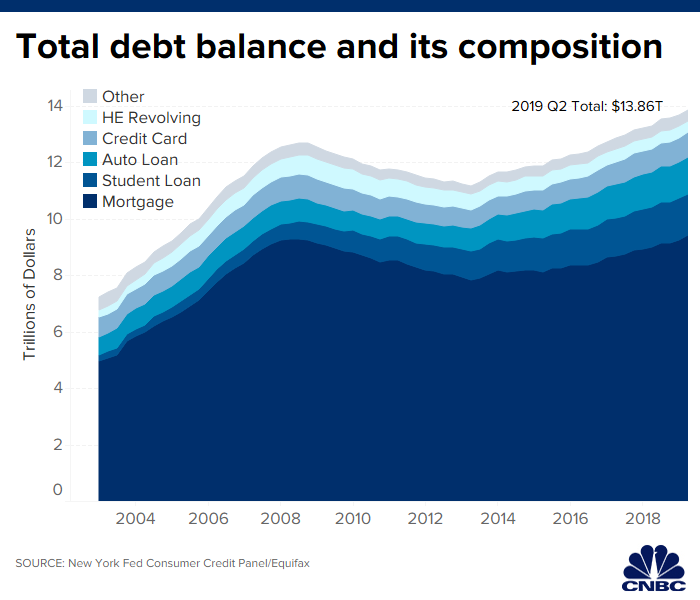For those struggling with student debt, a new credit card is hardly the answer.
Yet, lender Sallie Mae is banking on a few new offerings specifically geared toward recent grads with college loans.
As more people in the U.S. struggle to keep up with their credit card and student debt, the student loan lender recently rolled out three new cash-back cards with Mastercard — Ignite, Accelerate and Evolve.
The Accelerate card comes with 1.25% cash back on all purchases plus an extra incentive for student loan borrowers: a 25% bonus on cash-back rewards that are used to pay down any federal or private student loan.
With Ignite, cardholders earn 1% back on purchases and a 25% bonus on cash-back rewards after making six consecutive on-time payments.
“The goal is not to increase debt but to establish credit and do so responsibly,” said Rick Castellano, a spokesman for Sallie Mae.

To boost sign-ups, Ignite and Accelerate cardholders also have a chance to win $10,000 as part of the “Swipe Away $10K Sweepstakes,” which can be put toward a student debt tab, as well.
As with any card, it’s important to read the fine print. Sallie Mae’s offerings have no annual fee and a 0% introductory offer but after that the APR ranges from 14.99% to 24.99%, based on your creditworthiness. (The average credit-card interest rate is just under 18%, according to Creditcards.com.)
“People can do better but they certainly can do a lot worse,” said Ted Rossman, an industry analyst at Creditcards.com.
Other cash-back reward programs vary. Some cards offer a “flat rate,” which means you’ll get, say, 2% cash back whether you buy a plane ticket to Paris or a refrigerator. Other issuers offer more points for certain purchases.
Either way, “1% back is the bare minimum,” Rossman said. The Apple Card, for example, offers 3% cash back on goods purchased directly from Apple, 2% cash back on Apple Pay purchases and 1% cash back on all other purchases.
More from Personal Finance:
Americans are spending more, but are still not saving
Here’s how long it takes to improve your credit score
The 30% rule of thumb about credit card use could cost you
Regardless of which card you choose, “the important thing is to build good credit,” Rossman said. That boils down to paying your balance on time and in full every month to avoid late fees and interest charges and not buying things you otherwise can’t afford.
If you are in the market for a new credit card, the Consumer Financial Protection Bureau breaks down the terms and conditions you should be aware of.
You can also research different card offerings at Bankrate.com, Creditcards.com or Comparecards.com.
